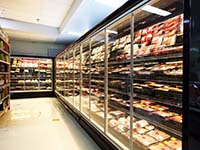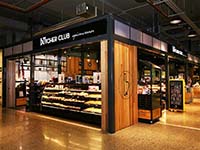
Discover best practices for commercial refrigeration maintenance with P&R Commercial Refrigeration. Keep your business efficient. Call us at (03) 9357 0799.
Commercial refrigeration maintenance aims to achieve optimal performance, energy efficiency, and longevity of commercial refrigeration equipment. It is conducted through a combination of preventive and corrective tasks. Preventive maintenance focuses on identifying and addressing potential issues before they escalate into major problems, while corrective maintenance involves repairing or resolving existing breakdowns or malfunctions.
To ensure optimal performance and longevity of commercial refrigeration systems, they should be subjected to preventive maintenance. Here are some best practices and strategies for commercial refrigeration preventive maintenance.
Regular Inspection and Cleaning
Regular inspection and cleaning are fundamental components of preventive maintenance. Routine inspections should be scheduled to identify any signs of wear, leaks, or malfunctions. The condenser coils, evaporator coils, and fan blades must then be cleaned to remove dust, dirt, and debris that can obstruct airflow and impede the system’s efficiency.
Seal and Gasket Inspection
The integrity of door seals and gaskets is vital to maintain the efficiency of refrigeration systems. Inspecting and cleaning door seals regularly can help remove dirt, debris, and food particles that can compromise the seal. Replacing damaged or worn-out seals promptly can also prevent air leakage and temperature fluctuations.
Temperature and Calibration Checks
Accurate temperature control is crucial for commercial refrigeration systems. Hence, temperature sensors, thermostats, and control systems must be monitored and calibrated to ensure they function correctly. Deviations from the desired temperature range, after all, can impact product quality and compromise food safety. Implementing a regular schedule for temperature checks and recalibration is likewise a must to maintain optimal conditions.
Refrigerant Level and Leak Checks
Maintaining the correct refrigerant level is essential for optimal system performance and preventing potential environmental harm. And so, refrigerant levels must be regularly checked. If necessary, the refrigerant must be recharged following manufacturer guidelines. Additionally, leak checks must be done to identify and address any refrigerant leaks promptly.
Condensate Drain Maintenance
Commercial refrigeration units generate condensate, which must be effectively drained. Clogged or malfunctioning condensate drains can cause water buildup, leading to leaks, water damage, and potential system malfunctions. To avoid these issues, professionals should regularly inspect and clean condensate drains to prevent blockages.
Fan and Motor Maintenance
Fans and motors are critical components of commercial refrigeration systems that must be free from debris to improve airflow, enhance energy efficiency, and last for a long time. Inspecting and cleaning the fan blades regularly can ensure they are free from debris and able to move air efficiently. Motors must also be lubricated as per manufacturer recommendations to reduce friction and wear.
Documentation and Maintenance Logs
Maintaining detailed documentation and maintenance logs is vital for effective preventive maintenance. Keeping records of inspections, cleaning, repairs, and maintenance tasks performed, as well as documenting temperature readings, refrigerant levels, and any system issues encountered can help track system performance, identify recurring issues, and schedule future maintenance activities.
Preventive maintenance is crucial for maintaining the optimal performance and longevity of commercial refrigeration systems. By implementing these best practices, your business can minimise downtime, improve energy efficiency, and preserve the quality and safety of your perishable goods, ensuring seamless operation and customer satisfaction.
Optimized by: Netwizard SEO




